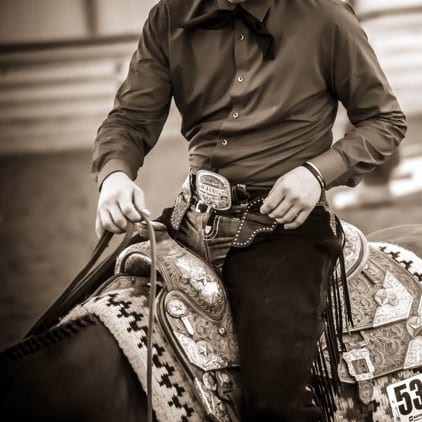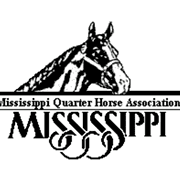Think back to the last roller coaster you were on; remember the ups and downs, twists and turns, the thrill, the fear and the questioning whether you’d lost your mind setting foot on the thing in the first place?
Now consider what a graph of a horse owner’s emotions would look like from the time they purchase a new horse or a young prospect to the time the team (hopefully) sets foot in the show pen. There’s likely a striking resemblance between that thrilling roller coaster ride and a horse owner’s emotional journey to the horse show.
It’s often a journey that starts with a high of excitement as one anticipates the future but, with a horse – or a trainer, for that matter – that isn’t meeting the owner’s expectations, it can be a ride marked by unexpected and gut-wrenching dips and dives that leaves one begging to disembark.
Here in Part 1 of our series, Amy Mackie-Smith and Jan Pittman, both experienced horse owners, and trainers, Jason English, Beth Case and Keith Miller collaborated to help ensure GoHorseShow readers are ready to navigate that roller coaster of a ride.
Read on to learn their tips to ensure success in the event a horse or a trainer isn’t entirely living up to expectations. There’s a lot more to it than meeting a height requirement.
First things first: do your homework
Cutting ties with a horse can be heart-breaking, but cutting ties with a trainer might be even worse, as it can be emotional for both sides. Whether you already own the horse you’d like to send to training or you’re ready to start the hunt for one, seasoned horse owners and trainers suggest informing yourself as best you can. This means weighing the training options you’re comfortable with. Considering the various trainers, their programs, their locations, and their specialties to the best of your ability and balance those with your needs and desires.
Doing this homework and finding a trainer whose program and style meets your goals will start your journey on the right foot. Then, you can match your horse to a trainer or – better yet – use the expertise of the trainer to help you find a horse that has the talent and demeanor to meet your goals. Doing both of these things can help you avoid stressful decisions down the road.
When it comes to choosing a trainer, Pittman, who self-trains her longe line prospects but uses trainers for her western pleasure horses offers these words of advice. “If you’re brand new in the business, I would recommend you read, go to shows, watch horses, and talk to customers. There’s nothing wrong with asking for references. Then, ask the trainers themselves to tell you about their program,” she says. “Ask what they feed and how they take care of their horses. Know the rates up front to make sure those fit the budget. And, of course, tell them about your goals.”
Mackie-Smith, whose focus is on futurity horses in both hunter under saddle and western pleasure, agrees. She suggests being an informed consumer of training services – making it a priority to study the discipline in which you hope to excel so that you can contribute to significant decisions, rather than relying solely on the honesty and integrity of a trainer.
“Educate yourself in the direction of what you’re doing in that discipline and learn as much about it as you can before putting all the decision-making responsibility on a trainer,” Mackie-Smith says. When it comes to choosing a trainer, Mackie-Smith also uses recommendations of trusted colleagues in the industry.
Case and Miller both suggest learning through observation. Just by watching whose doing well in the show pen, may guide you in the direction of a trainer to choose.
“Try to be as informed as possible and gain knowledge. I think many people can learn just by observing what is going on around them at a horse show – both the good and the bad. Watch the warm-up arena, watch the show arena, watch educational videos and see how horses are being prepared and presented that lead to success in the show pen,” Miller says.
Case suggests that owners focus particularly on watching the level at which they will eventually show. “Don’t just watch the open events. Watch the amateur and non-pro events. Because if you want to do well yourself, that’s the level you’ll need to compete at,” she says
If you’re still in the pre-purchase stage of the journey and haven’t yet committed to a trainer that your horse-to-be will learn from, Pittman makes this suggestion as you shop. “Call the trainer, send the trainer a video and talk with the trainer. Then, that person can give you their opinion like, ‘Hey, I think this horse will work or won’t work in my program.’”
Seek out a trainer who can meet your needs
In addition to finding a trainer who specializes in the discipline in which you hope to excel, it’s important to know that trainers offer a variety of different services and experiences for their customers. Miller recommends you consider the following factors: your budget; how often you want to show; which shows you’d like to attend; how often you’d like your trainer to be available for lessons; the care you expect the horse to receive; and how much personal attention you will need and want at a horse show.
“Make a list and prioritize what’s important to you. Try to find someone that checks off most of the boxes,” Miller says. “Some trainers have more of a boutique feel where there are limited numbers of customers while some are full-on training operations. Some owners want to be extremely involved, and some owners want a professional groom. All are okay but consider what your needs are and make your decision from there.”
Stay tuned for Part 2 that continues the discussion on this important hot-button issue.
About the author: When she isn’t wrangling 12 and 13 year-olds in her middle school English classroom, Megan Ulrich enjoys riding, showing and judging horses. She lives in Holmen, Wisc., with her husband, daughter, two dogs and two horses. She earned her journalism degree from the University of Wisconsin-Madison.








